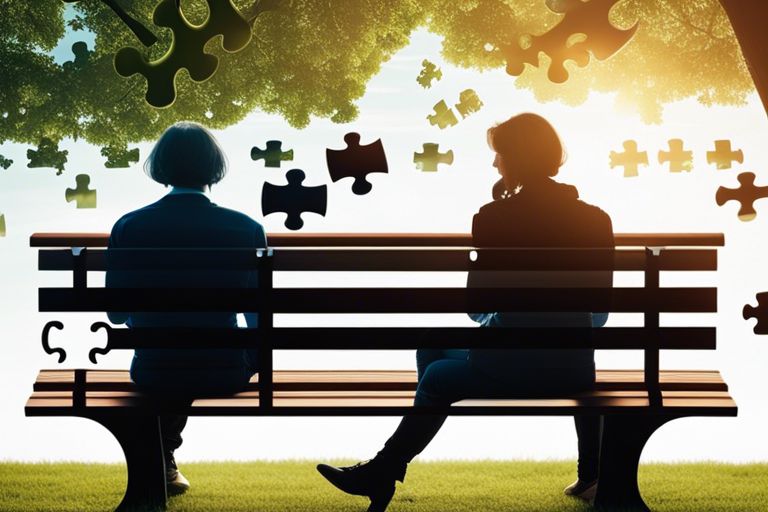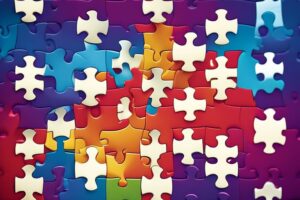When it comes to autism and relationships, understanding social dynamics is crucial for individuals on the autism spectrum and their partners. Autistic individuals may face challenges in social interactions, communication, and empathy, which can impact their relationships. However, with understanding, patience, and support, individuals with autism can form meaningful connections and cultivate healthy relationships. Recognising the unique strengths and difficulties associated with autism is key to nurturing and sustaining fulfilling relationships for all involved.
Key Takeaways:
- Communication is key: Individuals with autism may struggle with social interactions, so effective communication is crucial to building and maintaining relationships.
- Understanding emotions: It is important to recognise and understand emotions, both in oneself and others, to navigate social situations and develop meaningful connections.
- Support and acceptance: Providing support, patience, and acceptance can help individuals with autism feel valued and included in relationships, fostering positive social dynamics.

Communication Challenges in Autism
Individuals with autism often face communication challenges that can impact their relationships with others. Understanding these challenges is crucial in developing meaningful connections and improving social interactions.
Recognizing Nonverbal Cues
One of the key challenges for individuals with autism is recognising and interpreting nonverbal cues such as facial expressions, body language, and tone of voice. This can lead to misunderstandings and difficulties in social situations, as they may struggle to grasp the subtle messages conveyed through nonverbal communication.
It is important for individuals with autism to receive specific guidance and support in learning how to interpret nonverbal cues. Practising empathy exercises and role-playing scenarios can help improve their awareness and understanding of nonverbal communication.
Overcoming Verbal Communication Barriers
Verbal communication can also pose challenges for individuals with autism. They may struggle with expressing themselves clearly, processing information quickly, and maintaining conversations. Overcoming these barriers involves developing effective communication strategies and building confidence in their verbal skills.
Speech therapy, social skills training, and utilising visual aids such as social stories can enhance verbal communication skills for individuals with autism. By practising and rehearsing conversations, they can improve their ability to engage in meaningful dialogues and connect with others on a deeper level.
Social Dynamics and Autism
Understanding social dynamics is crucial when discussing autism and relationships. People with autism often experience challenges in interpreting social cues, understanding non-verbal communication, and navigating complex social interactions.
Forming and Maintaining Friendships
Forming and maintaining friendships can be particularly challenging for individuals with autism. Difficulties in initiating conversations, struggles with small talk, and misinterpretations of social cues can create barriers to developing meaningful connections. However, with support and understanding, individuals with autism can learn social skills and build lasting friendships.
Navigating Romantic Relationships
When it comes to navigating romantic relationships, individuals with autism face unique challenges. Issues such as sensitivity to sensory input, difficulties in expressing emotions, and misunderstandings in social cues can impact intimacy and communication. Patience, empathy, and clear communication are essential for both partners in a relationship involving autism.
It is important for individuals with autism and their partners to educate themselves about autism and how it can affect relationships. Open communication and acceptance of differences can foster strong, healthy relationships between autistic and neurotypical individuals.

Support Systems and Interventions
Support systems and interventions play a crucial role in the lives of individuals with autism, helping them navigate social interactions and relationships effectively. These systems are designed to provide the necessary support and guidance tailored to the unique needs of each individual, promoting their well-being and social development.
The Role of Family in Social Development
Family is often the primary support system for individuals with autism, playing a fundamental role in their social development. Families provide emotional support, understanding, and a sense of belonging, which are essential for individuals with autism to thrive in social situations. Building strong family relationships can significantly impact the individual’s confidence and social skills, enabling them to form connections with others more easily.
The involvement of parents and siblings in the individual’s social development can create a supportive environment where the individual feels accepted and valued. Through open communication, encouragement, and understanding, family members can help individuals with autism navigate social challenges and build meaningful relationships.
Professional Support Options and Therapies
Professional support options and therapies are essential components of the support system for individuals with autism. Therapists, psychologists, and behaviour analysts are trained professionals who provide guidance and interventions to help individuals with autism develop their social skills and navigate social interactions effectively.
Therapies such as Applied Behaviour Analysis (ABA) and social skills training are commonly used to target specific social deficits and improve the individual’s ability to engage with others. These therapies are evidence-based and tailored to the individual’s needs, helping them build confidence and competence in social situations.

Adapting to a Neurodiverse World
As we strive to understand and support individuals with autism in their relationships, it is crucial to consider how we can adapt to a neurodiverse world. Creating a supportive environment where diverse social dynamics and connections can thrive is essential for the well-being of individuals on the autism spectrum. Research has highlighted the significance of Supportive Relationships in Autism Spectrum Disorder, emphasising the positive impact such connections can have.
Fostering Inclusive Environments
In order to foster inclusive environments, it is important to promote understanding and acceptance of neurodiversity. Educating the community about autism and emphasising the value of diverse perspectives can help create a more inclusive society. Encouraging empathy, patience, and open communication can lay the foundation for supportive relationships that benefit individuals on the autism spectrum.
Strategies for Social Success
Implementing specific strategies for social success can further enhance the quality of interactions for individuals with autism. These strategies may include providing clear communication, offering predictability in social situations, and creating structured routines. Empathy, understanding, and flexibility are key components in supporting individuals with autism to navigate social interactions more comfortably.
By equipping individuals with autism with the necessary tools and strategies, we can empower them to engage more confidently in social settings. These strategies for social success not only benefit individuals with autism but also contribute to building a more inclusive and understanding society overall.
Conclusion: Autism and Relationships – Understanding Social Dynamics and Connections
Understanding the social dynamics and connections in relationships involving individuals with autism is crucial for building fulfilling connections. By recognising the unique communication styles and sensory sensitivities of individuals with autism, partners, family members, and friends can cultivate stronger and more supportive relationships. Empathy, patience, and effective communication are essential tools in fostering understanding and navigating any challenges that may arise. Education and awareness play pivotal roles in fostering inclusivity and acceptance in all types of relationships. By acknowledging and embracing the diversity in social interactions, we can create a more inclusive and supportive environment for individuals with autism to thrive in their relationships.
FAQ
Q: What is autism?
A: Autism, or autism spectrum disorder (ASD), is a developmental disorder that affects communication, social interaction, and behaviour.
Q: How does autism affect relationships?
A: Autism can impact relationships by influencing how individuals communicate, interpret social cues, and handle emotional situations.
Q: What are common challenges faced by individuals with autism in relationships?
A: Some common challenges include difficulty in expressing emotions, understanding non-verbal cues, maintaining eye contact, and dealing with sensory sensitivities.
Q: How can one support a partner with autism in a relationship?
A: Supporting a partner with autism involves open communication, patience, understanding their needs, respecting their boundaries, and seeking professional help when needed.
Q: What strategies can help improve social connections for individuals with autism?
A: Strategies such as social skills training, practicing active listening, engaging in shared activities of interest, and using visual aids can help improve social connections for individuals with autism.
Q: Why is it important to educate oneself about autism and relationships?
A: Educating oneself about autism and relationships fosters empathy, enhances communication, promotes understanding, and strengthens bonds in relationships involving individuals with autism.
Q: Where can one seek support and resources related to autism and relationships?
A: One can seek support and resources from autism organisations, mental health professionals, support groups, online forums, and specialised therapists who work with individuals with autism and their partners.







